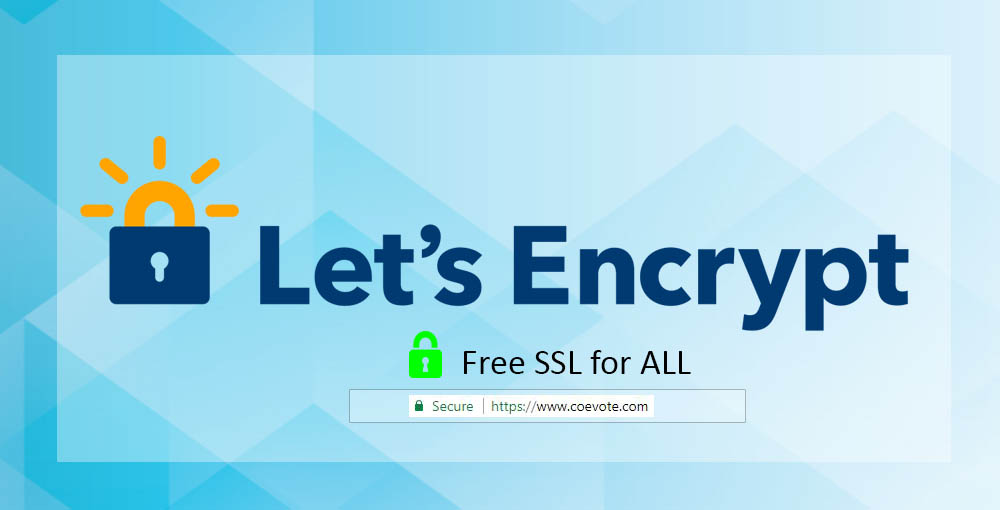
Lets Encrypt will Encrypt your Data
I already told about let encrypt in my previous post. Let’s encrypt are common name in the internet to sharing https protocol for secure and encrypted data over the web both of giving ssl for free .
You can easily add ssl to your website that helps you to boost ranking on the web. User like to use secure website that enable https over the website to secure data encrypt. For this WordPress and Google, both announced that ssl for ranking signal in future update all WordPress going to used https than a better option to use free certificate than the much paid ssl.
Let’s Encrypt plans to begin offering free wildcard certificates in January 2018, a move likely to make web security easier and a bit less costly for many organizations. Let’s Encrypt certs must be renewed every 90 days, but the renewal process can be automated via script or service.
A wildcard certificate can secure any number of subdomains of a base domain (e.g. *.example.com). This allows administrators to use a single certificate and key pair for a domain and all of its sub domains, which can make HTTPS deployment significantly easier.
Currently let encrypt issued certificate individual sub-domain need to add during the registration of certificates. 47 million domains secured with let’s encrypt with fully automated Domain Validation certificate issuance and management. This has contributed heavily to the web going from 40% to 58% encrypted pages load started in 2015. After wildcard availability 100% of encrypted web possible .
A let’s encrypt wildcard certificate made available as part of upgraded to let’s encrypt support for the Automated Certificate Management Environment (ACME) protocol, an interface for pro grammatically deploying certificate keys to servers. Originally developed by the ISRG specifically for Let’s Encrypt, ACME version 2 is now an Internet Engineering Task Force draft protocol. This time wildcard certification available for domain validation via DNS for wild certificates .
Wildcard certificates will be offered free of charge via our upcoming ACME v2 API endpoint. We will initially only support base domain validation via DNS for wildcard certificates but may explore additional validation options over time. We encourage people to ask any questions they might have about wildcard certificate support on our community forums.

